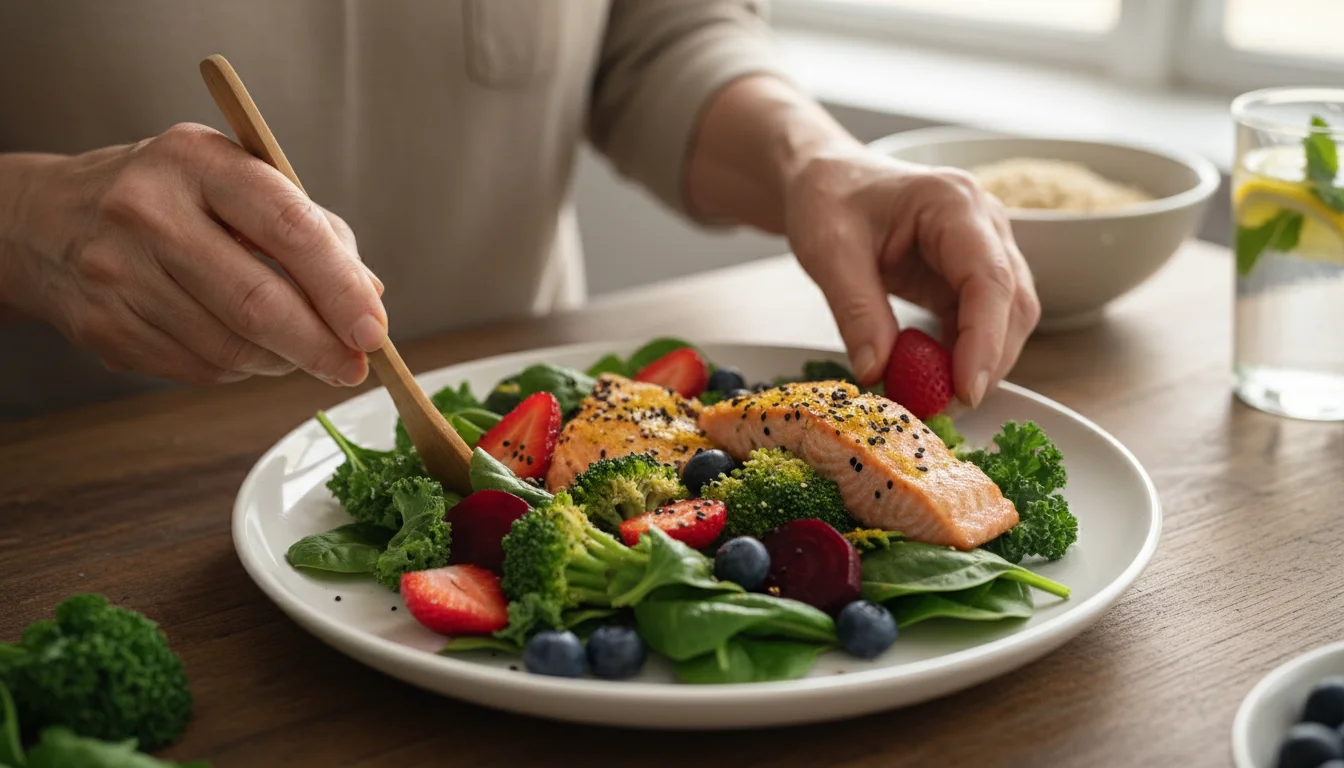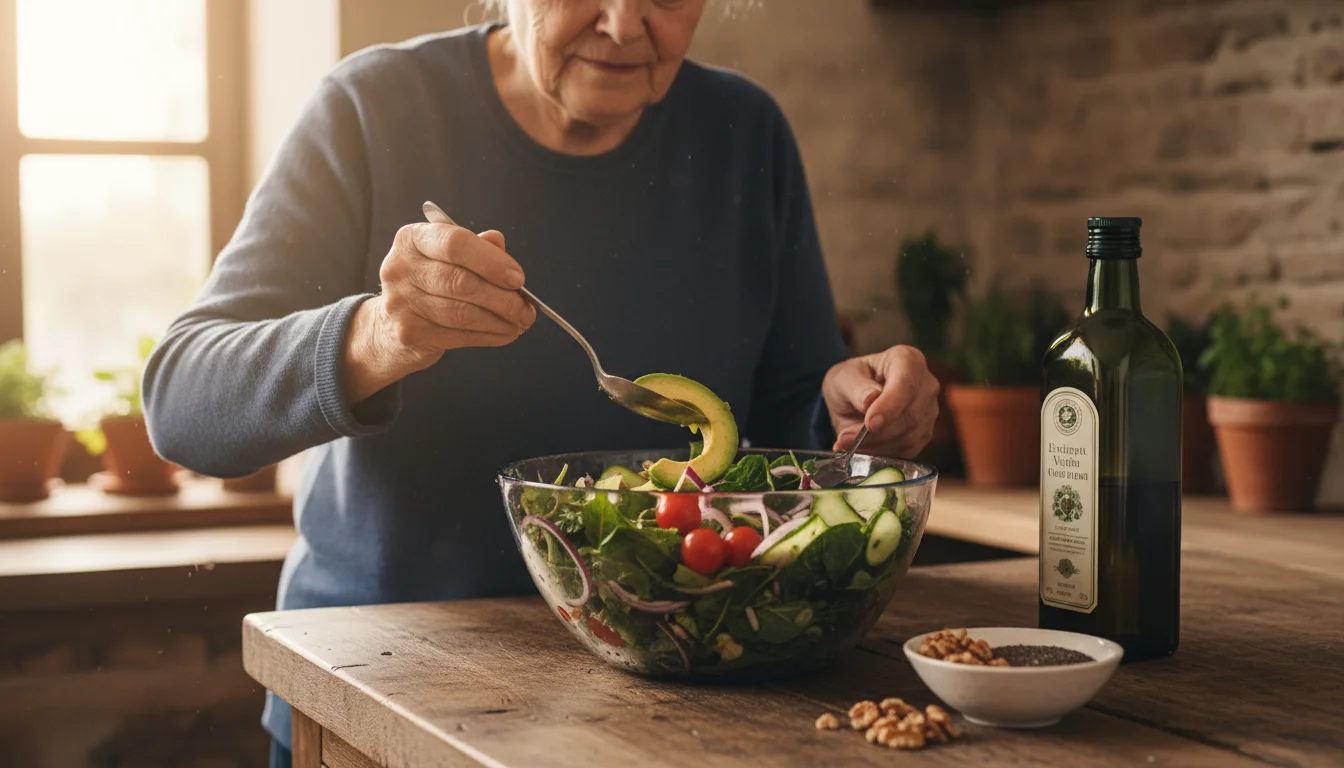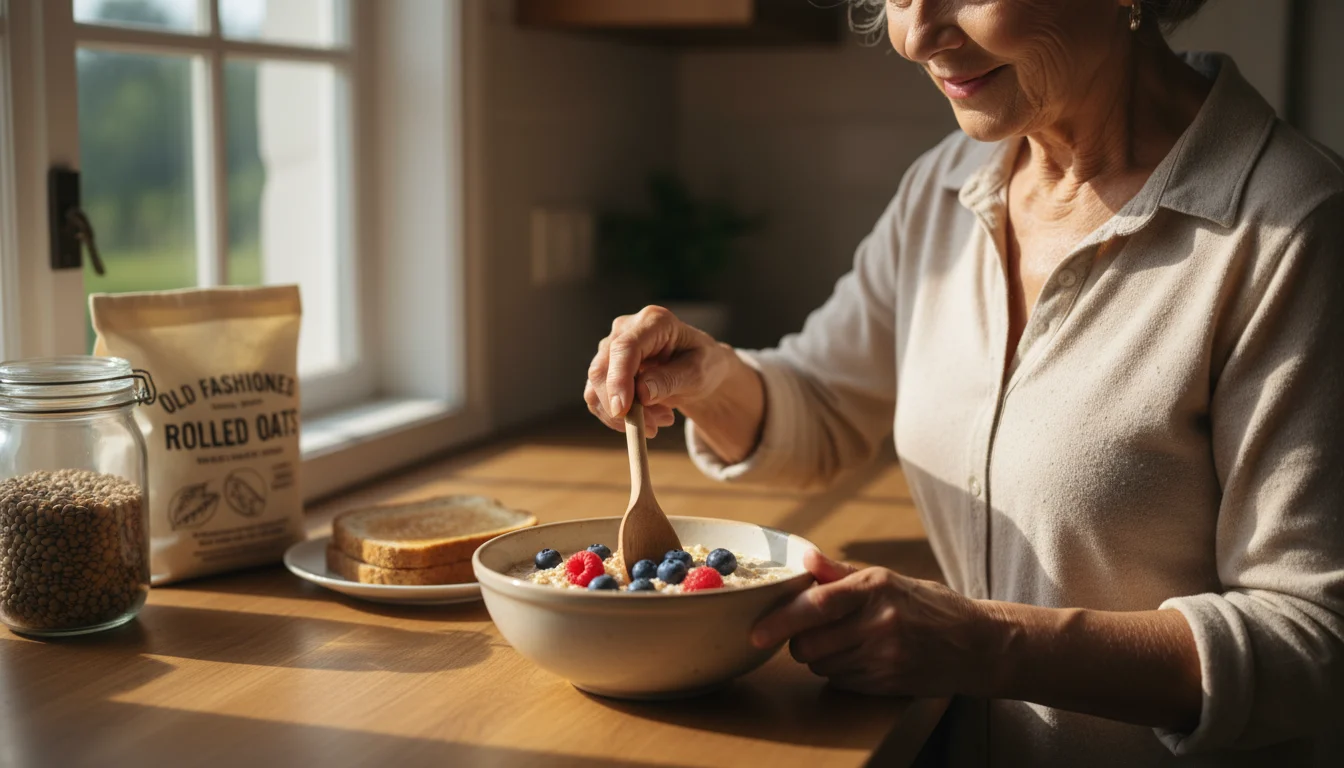
A Step-by-Step Guide to Eating Anti-Inflammatory Foods Safely
Getting started with an anti-inflammatory diet doesn’t have to be complicated. The goal is to focus on whole, natural foods and gradually reduce your intake of processed items that can promote inflammation. Think of it as adding more color and variety to your plate. Here is a practical guide to the best food groups to focus on.

1. Fill Your Plate with Fruits and Vegetables
Fruits and vegetables are the foundation of any healthy eating plan. They are packed with antioxidants, which are natural compounds that help protect your cells from damage caused by inflammation. Aim for a wide variety of colors to get the broadest range of nutrients.
- Berries: Blueberries, strawberries, raspberries, and blackberries are antioxidant powerhouses. They are great in oatmeal, yogurt, or as a simple snack.
- Leafy Greens: Spinach, kale, and collard greens are rich in vitamins and antioxidants. Remember to talk to your doctor if you are on blood thinners before increasing your intake.
- Cruciferous Vegetables: Broccoli, cauliflower, and Brussels sprouts contain a compound called sulforaphane, which has been shown to have potent anti-inflammatory effects. Steaming or roasting them is a healthy and delicious preparation method.
- Tomatoes: Rich in lycopene, an antioxidant that is particularly good for heart health. Cooking tomatoes, such as in a sauce, can make the lycopene even easier for your body to absorb.

2. Choose Healthy Fats
Not all fats are created equal. While you want to avoid unhealthy trans fats and limit saturated fats, healthy monounsaturated and polyunsaturated fats, especially omega-3 fatty acids, are powerful inflammation fighters.
- Extra Virgin Olive Oil: Use this as your primary cooking oil. It contains oleocanthal, a compound with effects similar to ibuprofen. Drizzle it over salads and cooked vegetables.
- Avocados: A wonderful source of monounsaturated fat, potassium, and fiber. Add slices to a sandwich or mash it on whole-grain toast.
- Nuts and Seeds: Walnuts, almonds, flax seeds, and chia seeds are excellent sources of omega-3s. A small handful of nuts makes a great snack. Ground flax or chia seeds can be sprinkled into oatmeal or smoothies.

3. Incorporate Fatty Fish
Fatty fish are perhaps the best dietary source of the omega-3 fatty acids EPA and DHA, which have strong anti-inflammatory properties. Aim to eat fish at least twice a week.
- Best Choices: Salmon, mackerel, sardines, and anchovies are all high in omega-3s and tend to be lower in mercury than larger fish.
- Healthy Preparation: Baking, broiling, or steaming are much healthier options than frying. A simple baked salmon with lemon and herbs is both easy and delicious.

4. Lean on Whole Grains and Legumes
Unlike refined carbohydrates (like white bread and pastries) which can spike blood sugar and promote inflammation, unprocessed whole grains and legumes are rich in fiber, which helps control inflammation and supports gut health.
- Whole Grains: Oats, brown rice, quinoa, and whole-wheat bread. Start your day with a bowl of oatmeal topped with berries.
- Legumes: Lentils, chickpeas, and black beans are excellent sources of fiber and plant-based protein. Add them to soups, salads, and stews.

5. Spice Up Your Meals
Certain herbs and spices are renowned for their medicinal and anti-inflammatory properties. They are a safe and flavorful way to boost the health benefits of your meals.
- Turmeric: Contains curcumin, a powerful anti-inflammatory compound. Its absorption is enhanced when consumed with black pepper. Try adding it to soups, rice dishes, or scrambled eggs.
- Ginger: Known for settling the stomach, ginger also has strong anti-inflammatory effects. Grate fresh ginger into stir-fries or brew it into a tea.
- Garlic: This kitchen staple can help fight inflammation and support immune health.

6. Foods to Limit or Reduce
Just as important as adding healthy foods is knowing which ones to cut back on. These foods are known to promote inflammation in the body.
- Sugary Foods and Drinks: Sodas, candy, pastries, and many breakfast cereals.
- Refined Carbohydrates: White bread, white pasta, and white rice.
- Fried Foods: French fries, fried chicken, and donuts.
- Processed Meats: Hot dogs, sausage, and deli meats.
- Unhealthy Fats: Margarine, shortening, and foods containing trans fats.


















